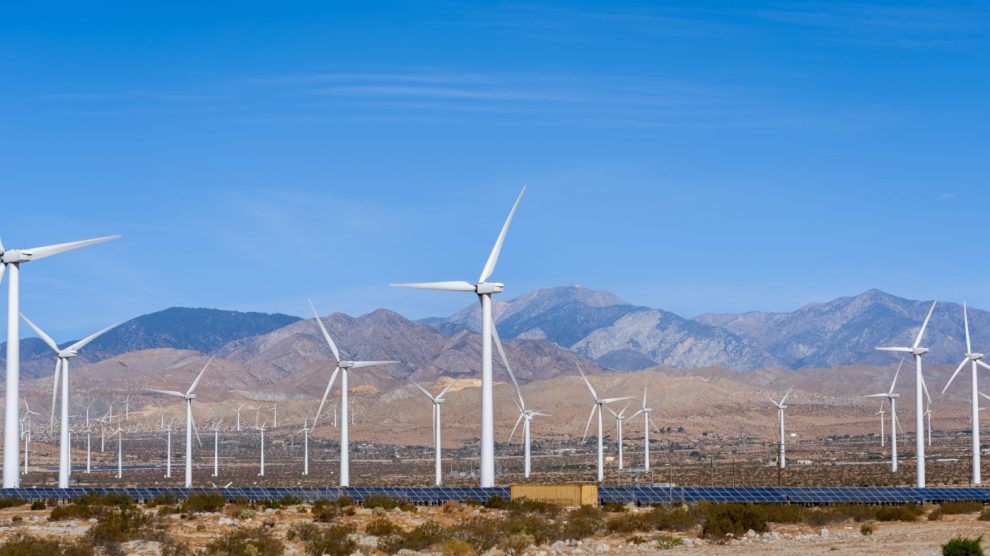Race to net Zhero. On Thursday, green energy company Zhero closed its first financing round by partnering with three world-class climate investors to support its first flagship projects, geared towards accelerating the energy transition (at a time of global crises) and “help[ing] to close the growing gap between climate ambition and climate action.”
- Three Cairns Group, Galvanize Climate Solutions and Fortescue Future Industries announced they are investing in the fast-growing green energy company, which focuses on renewable energy, green hydrogen and storage projects.
- The first projects will focus on building low-cost renewable energy infrastructure, amounting to 5 gigawatts, by 2026, across Zhero’s platforms in the United States, Europe, the MENA area and Australia.
Born to disrupt. Zhero was created by four renowned managers – Marco Alverà, Paddy Padmanathan, Alessandra Pasini and Enrico Vitali – with over 130 years of combined experience and a track record of delivering over $100 billion of industry-defining projects. They aim to leverage that experience, along with a considerable pool of talent, to catalyse the energy transition.
- “It’s entirely focussed on accelerating the energy transition by delivering asset-based energy delivery solutions to accelerate the decarbonisation of some of the hard-to-abate sectors of industry and human endeavour,” as Mr Padmanathan told Decode39, emphasising the global hunger for fast and scalable solutions.
From projects to pursuit. The world has now recognised the value proposition of renewable energy, noted the expert, and it’s very busy developing projects at scale, knowing full well it must do more and faster. However, electricity today only accounts for 20% of the energy spectrum and will probably amount to 50% by 2050 – leaving a massive gap to be filled with innovative solutions that won’t break society in the process.
- The good news, pointed out by Mr Padmanathan, is that we now recognise that hydrogen can play a determining role in replacing fossil fuels. However, we need to produce it at scale and in a sustainable manner; green hydrogen production requires renewable energy first and foremost.
Re-imagining the fuel economy. The next step is “transporting that hydrogen from places that produce it competitively to where the demand is. Meanwhile, we need to keep the world going and decarbonise, so we need to find solutions through pipelines and long-distance transportation.” Converting it into ammonia, another widely-cited solution, entails a loss of energy efficiency. But there’s another solution, explained the expert: e-methane.
- CO2 itself, a byproduct of the industry, can be used as a carrier. Instead of releasing it into the atmosphere or storing it underground, one could liquefy it, transport it to wherever green hydrogen is produced and blend it together to produce methane gas (CH4) and oxygen (O2).
- That “green methane” can now be either liquefied and shipped or pumped through pipelines, perhaps blending it with traditional methane while the transition is undergoing. “The beauty of this solution is that industry doesn’t have to do anything,” commented Mr Padmanathan: it would immensely facilitate the transition.
Follow the sun (and the wind). As the expert noted, the upstream requirement is the massive availability of renewable energy to produce green hydrogen via electrolysis (another field where Zhero intends to invest heavily). That, in turn, requires wind and sunlight to power turbines and solar panels. That’s where Zhero’s selected locations, which include regions in the Middle East and Northern Africa, come into play.
- “We intend to take advantage of attractive locations to produce renewable energy,” remarked the expert. Zhero, he added, is tech-agnostic but very solution-oriented and entirely focused on decarbonisation – “on hydrogen, for instance, we only deal with the ‘green’ version. We will be using the best available tech, staying ahead of the game. We are very much gearing up to work in these niche spaces – such as long-distance energy transmission – where we need to move fast and scale up.”




